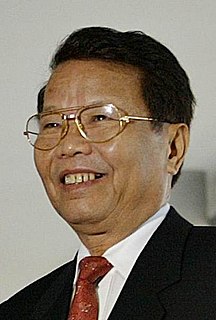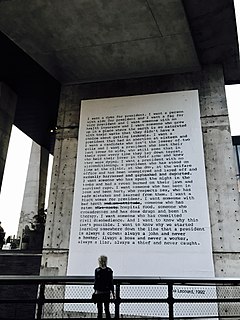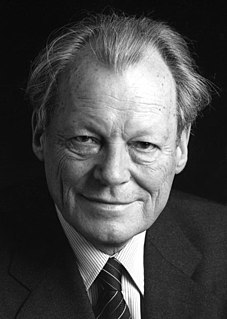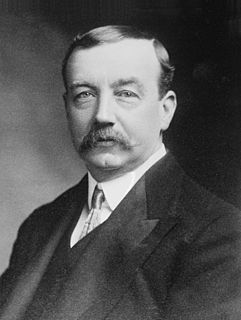A Quote by Adolf Hitler
If in the past, after every lost war, the unlucky vanquished were divested forever of their honor and their equality of rights, the League of Nations would even now have to be satisfied with a whole series of non-equal and thus ultimately dishonorable and inferior nations.
Related Quotes
Well, my view before was a Western view, and I certainly understand marriage equality and civil rights, equal rights for all, but having visited developing nations and some of the poorest nations in the world, I realize how deep it goes and how much work really needs to be done to create equality for all.
World War II was fought for the abolition of racial exclusiveness, equality of nations and the integrity of their territories, liberation of enslaved nations and restoration of their sovereign rights, the right of every nation to arrange its affairs as it wishes, economic aid to nations that have suffered and assistance to them in attaining their material welfare, restoration of democratic liberties, and destruction of the Hitlerite regime.
No principle of general law is more universally acknowledged, than the perfect equality of nations. Russia and Geneva have equal rights. It results from this equality, that no one can rightfully impose a rule on another....As no nation can prescribe a rule for others, none can make a law of nations.
The United Nations exists not merely to preserve the peace but also to make change - even radical change - possible without violent upheaval. The United Nations has no vested interest in the status quo. It seeks a more secure world, a better world, a world of progress for all peoples. In the dynamic world society which is the objective of the United Nations, all peoples must have equality and equal rights.
After the First World War, it was, like, let's form the League of Nations, we have to learn to work together. It's the only way we're going to survive. And now it's like we're undoing these very fragile institutions that were built after the First and Second World Wars that were about nations working on a kind of global diplomacy for our mutual benefit. And we're undoing them at such rapid-fire pace.
The United Nations would probably have to rest on two pillars: one constituted by an assembly of equal executive representatives of individual countries, resembling the present plenary, and the other consisting of a group elected directly by the globe's population in which the number of delegates representing individual nations would, thus, roughly correspond to the size of the nations.
For all the civilians saved thanks to the presence of peacekeepers, there have been those who were lost - the United Nations personnel who sacrificed their lives for a noble cause. Even as we mourn our fallen colleagues, we are all uplifted by their unflinching commitment and are inspired to strive even harder for the collective cause so eloquently envisaged in the United Nations Charter: a world free from the scourge of war.
All cultures forged by nations—the noble indigenous past of America, the brilliant civilization of Europe, the wise history of Asian nations, and the ancestral wealth of Africa and Oceania—are corroded by the American way of life. In this way, neoliberalism imposes the destruction of nations and groups of nations in order to reconstruct them according to a single model. This is a planetary war, of the worst and cruelest kind, waged against humanity.
The woman's bill of rights is, unhappily, long overdue. It should have run along with the rights of man in the eighteenth century. Its drag as to time of official proclamation is a drag as to social vision. And even if equal rights were now written into the law of our land, it would be so inadequate today as a means to food, clothing and shelter for woman at large that what they would still be enjoying would be equality in disaster rather than in realistic privilege.











































